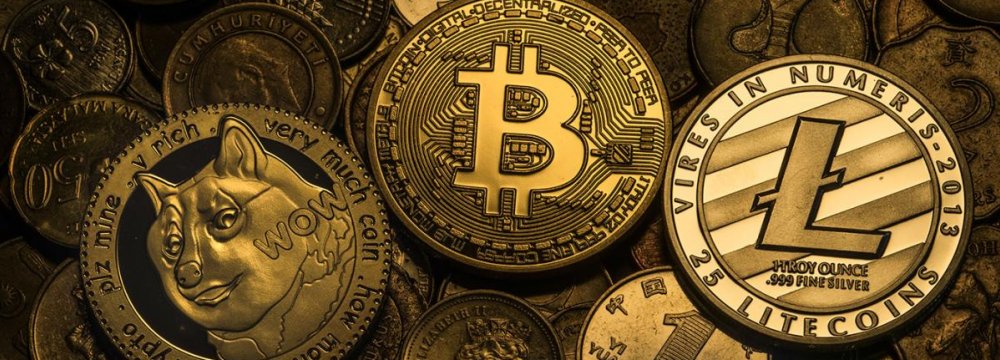
Iranian Banker Calls for Cryptocurrency Recognition

"Iran must formally recognize activities using digital currencies as they are currently shaping the future of banking. Banks themselves must also enter this field to use them," Masoud Khatouni, the deputy for information technology and communications network at Bank Melli Iran, also told IBENA.
As to what approach must be selected by the Central Bank of Iran, Khatouni said the monetary regulator can gradually move toward digital currencies by following a roadmap whose first step can entail designing a domestic digital currency.
As previously announced, the central bank plans to make its stance regarding cryptocurrencies clear as part of a regulatory framework that is expected to be ready by the end of the first half of the next Iranian fiscal year in September.
However, CBI Governor Valiollah Seif and its head of Innovative Technologies Department, Nasser Hakimi, have urged people to exert utmost caution when dealing in cryptocurrencies, especially the most well known Bitcoin.
But in continuation of his support for the use of virtual currencies, the official regarded cryptocurrencies as helpful instruments, especially for a nation that has had a history of dealing with sanctions.
"The future of banking throughout the world is intertwined with digital currencies, which are entering the banks silently as most banks remain oblivious to their presence," he said.
Khatouni stressed that Iran must approach the concept of digital currencies in a way that will impose "no limitations" on their use, meaning that the country's businesses and players must be allowed to employ them with more confidence and with higher levels of transparency.
The BMI official warned that the more time it takes for digital currencies to formally enter the country, the more damage it will inflict.
"Many people inside the country are currently engaged in buying and selling digital currencies such as Bitcoin, so we must not let things continue, which will force them to deal in it secretly and for that we need to devise comprehensive, precise and transparent rules and regulations for the use of digital currencies," he said.
Khatouni proposed that regulators at the central bank should form a specialized group for digital currencies, which should be tasked with devising regulations based on the global experience.
"I ask central bank officials to refrain from creating restrictions for digital currencies by way of laws and regulations, because based on the current realities of the world, they have taken form and the Iranian people have also moved toward them," he said.
Iranian officials have so far sent mixed signals on the fast-emerging cryptocurrencies. The CBI governor last week urged Iranian investors to exercise caution in trading the popular cryptocurrency.
The price of Bitcoin has doubled four times in 2017. In early January, one Bitcoin was worth about $1,000. By May, it hit $2,000. In June, it breached $4,000. By Thanksgiving, it was $8,000. Two weeks later, it was $16,000.
On Jan. 6, each Bitcoin was trading for $16,500.
Regulators around the world are taking notice of the virtual currency, concerned that beside the explosion of legitimate investment in digital currencies lurks a great deal of old-fashioned market manipulation and consumer fraud.


Trump weighs using $2 billion in CHIPS Act funding for critical minerals

Codelco cuts 2025 copper forecast after El Teniente mine collapse

Electra converts debt, launches $30M raise to jumpstart stalled cobalt refinery

Barrick’s Reko Diq in line for $410M ADB backing

Abcourt readies Sleeping Giant mill to pour first gold since 2014

Nevada army depot to serve as base for first US strategic minerals stockpile

SQM boosts lithium supply plans as prices flick higher

Viridis unveils 200Mt initial reserve for Brazil rare earth project

Tailings could meet much of US critical mineral demand – study

Kyrgyzstan kicks off underground gold mining at Kumtor

Kyrgyzstan kicks off underground gold mining at Kumtor

KoBold Metals granted lithium exploration rights in Congo

Freeport Indonesia to wrap up Gresik plant repairs by early September

Energy Fuels soars on Vulcan Elements partnership

Northern Dynasty sticks to proposal in battle to lift Pebble mine veto

Giustra-backed mining firm teams up with informal miners in Colombia

Critical Metals signs agreement to supply rare earth to US government-funded facility

China extends rare earth controls to imported material

Galan Lithium proceeds with $13M financing for Argentina project

Kyrgyzstan kicks off underground gold mining at Kumtor

Freeport Indonesia to wrap up Gresik plant repairs by early September

Energy Fuels soars on Vulcan Elements partnership

Northern Dynasty sticks to proposal in battle to lift Pebble mine veto

Giustra-backed mining firm teams up with informal miners in Colombia

Critical Metals signs agreement to supply rare earth to US government-funded facility

China extends rare earth controls to imported material

Galan Lithium proceeds with $13M financing for Argentina project

Silver price touches $39 as market weighs rate cut outlook

















